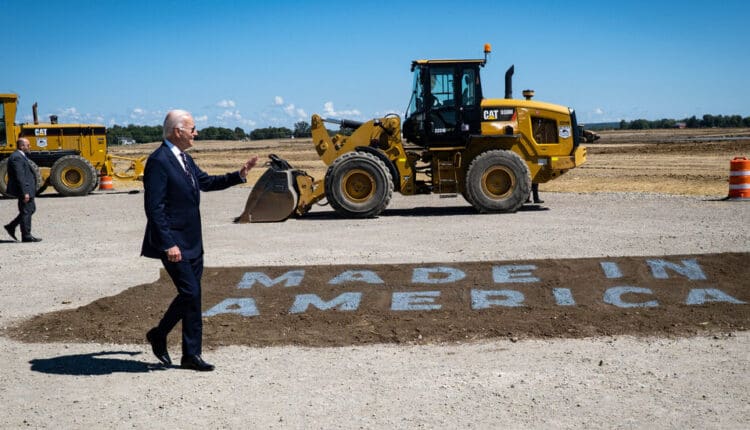
U.S. Allocates $504 Million for ‘Tech Hubs’ in Underserved Areas
TL/DR –
The Biden administration has granted $504 million to a dozen projects across the US, aimed at transforming neglected communities into technology hubs. The initiative, authorized by the CHIPS and Science Act, targets regions including western Montana, Central Indiana, South Florida, and upstate New York, and aims to accelerate industries like AI, clean energy, and biomanufacturing. While critics say the funding is insufficient for a substantial transformation, proponents argue that it will help create quality jobs and utilize underutilized resources.
Biden Administration Allocates $504 Million to Boost Underserved Tech Hubs
The Biden administration announced on Tuesday the allocation of $504 million to 12 projects aimed to transform regions historically overlooked into tech powerhouses. This initiative funds “tech hubs” that bolster critical technology production in areas including western Montana, Central Indiana, South Florida, and upstate New York. The hubs are intended to expedite growth in advanced U.S. industries such as biomanufacturing, clean energy, AI, and personalized medicine.
This federal initiative seeks to extend science and technology funding beyond Silicon Valley and few coastal regions. Diversifying tech funding can revitalize areas with traditionally less government investment, creating good-paying jobs and utilizing untapped resources nationwide. The program was authorized by the CHIPS and Science Act, passed in 2022, which increased domestic semiconductor manufacturing and scientific research funding.
Commerce Department Awards Grants to Tech Hubs in 12 Regions
Initially, the Commerce Department considered nearly 400 technology hub grant applications, narrowing them down to 31 projects. On Tuesday, 12 received grants ranging from $19 million to $51 million. However, concerns still exist as only roughly 5% of the authorized $10 billion has been appropriated, potentially hindering the program’s success.
Economic Experts Voice Concerns Over Program’s Funding and Impact
John Lettieri, CEO of the Economic Innovation Group, expressed skepticism about the success of the grants, stating that although the Biden administration is not at fault for the limited funding, larger investments would have been better. Mark Muro, a senior fellow at the Brookings Institution, agrees that further funding is necessary for a significant economic transformation but remains hopeful due to bipartisan interest in the program.
Commerce Department Enthusiastic About Program’s Potential
Despite funding concerns, Commerce Department officials are eager to offer additional funding rounds if Congress appropriates more funds. Commerce Secretary Gina Raimondo believes that with more money, more awards can be made, leading to more tech advancements, regional growth, and job creation.
Tech Hubs Projects in Tulsa and Indiana
One of Tuesday’s beneficiaries was a project in Tulsa, Oklahoma, aiming to develop drones and autonomous systems for customers, including the U.S. military. Another successful project from a consortium in Indiana named Heartland BioWorks intends to invest in biotechnology and biomanufacturing.
—
Read More US Political News
